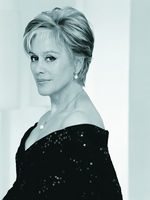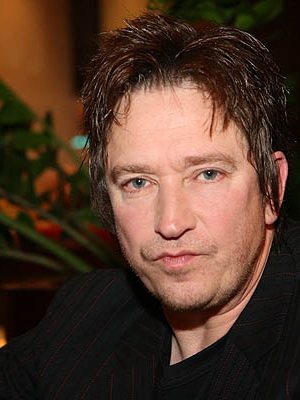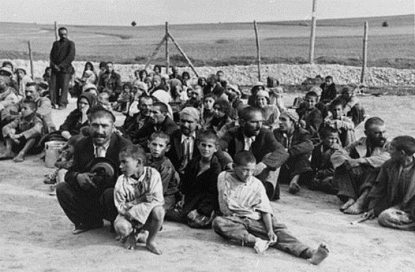An unforgettable moment: New Zealand. An open-air concert. As the orchestra leads into an aria from Madame Butterfly, the first violin's sheet music flies off the stage and into the first row of the audience. The concert was Te Kanawa's homecoming, and just as she was preparing to sing, she took command of the situation, hurried forward and, with a gentle smile, asked for the music. She returned to her place just in time, and perfectly, with the greatest of empathy, started the aria. Compassionate and professional. These two adjectives could be applied to the Te Kanawa's entire career.
Te Kanawa was adopted by a half-Maori, half-Irish family in New Zealand as an infant. As a teenager, she made preparations to become a pop start, but in 1965, she entered the Mobil Song Contest, singing an excerpt from Tosca, and won. The prize was a year of study in London, where she impressed her teachers.
Starting out as a mezzo-soprano, Te Kanawa gradually made the switch to singing soprano roles. Her stage debut was as one of the Three Ladies in The Magic Flute. Two years later, she signed a permanent contract with the Convent Garden Opera. Her big break came singing the role of the Countess in The Marriage of Figaro. After the conductor Colin Davis heard Te Kanawa sing, he remarked, "I couldn't believe my ears...I've never heard such a lovely voice before." In the 70s, Te Kanawa sang in all of the world's great opera houses, in Chicago, Paris, Sydney, Vienna, Milan, Cologne and Munich. Mozart roles, such as Donna Elvira in Don Giovanni, Pamina in The Magic Flute and Fiordiligi in Cosi Fan Tutte, made her famous, though she was also well known for her role as Mimi in Puccini's La Boheme. Te Kanawa's other area of expertise was the works of Richard Strauss. Her performances in Arabella, Der Rosenkavalier and Capriccio were among the highlights of her career. Another important moment came in 1981, when she sang a Handel aria at the wedding of Prince Charles and Lady Diana.
Even after playing all of these opera roles and making numerous classical recordings, Te Kanawa has retained her love of lighter music. She has recorded the songs of Gershwin, Cole Porter and Michel Legrand, performed in a production of West Side Story directed by Leonard Bernstein, and sung on a recording of My Fair Lady, with Jeremy Irons in the roll of Higgins. Maori folk songs also form an important part of her repertoire.
November 17, 2007, 19:30 Palace of Arts - Béla Bartók National Concert Hall (Budapest) - Kiri Te Kanawa (song recital concert); Mozart: Ridente la calma, K 152; An Chloe, K 524; Abendempfindung, K 523; Un moto di gioia, K 579; R. Strauss: Ständchen, op. 17 No. 2; Die Nacht, op. 10 No. 3; All mein Gedanken, op. 21 No. 1; Morgen!, op. 27 No. 4; Zueignung, op. 10 No. 1; Duparc: La vie antérieure; Chanson triste; Phidyle; Poulenc: Voyage á Paris; Hotel; Les chemins de l'amour (Valse Chantée); Guastavino: La rosa y el Sauce; Que Linda, la madreselva!; El clavel del aire blanco; Alberto Ginastera: Cancion al arbol del Olvido; Wolf-Ferrari: Rispetto I: Quando ti vidi a quel canto apparire, op. 12 No. 1; Rispetto III: E tanto c'? pericol ch'io ti lasci, op. 11 No. 3; Puccini: Sole e amore.
Author: Gergely Zöldi


